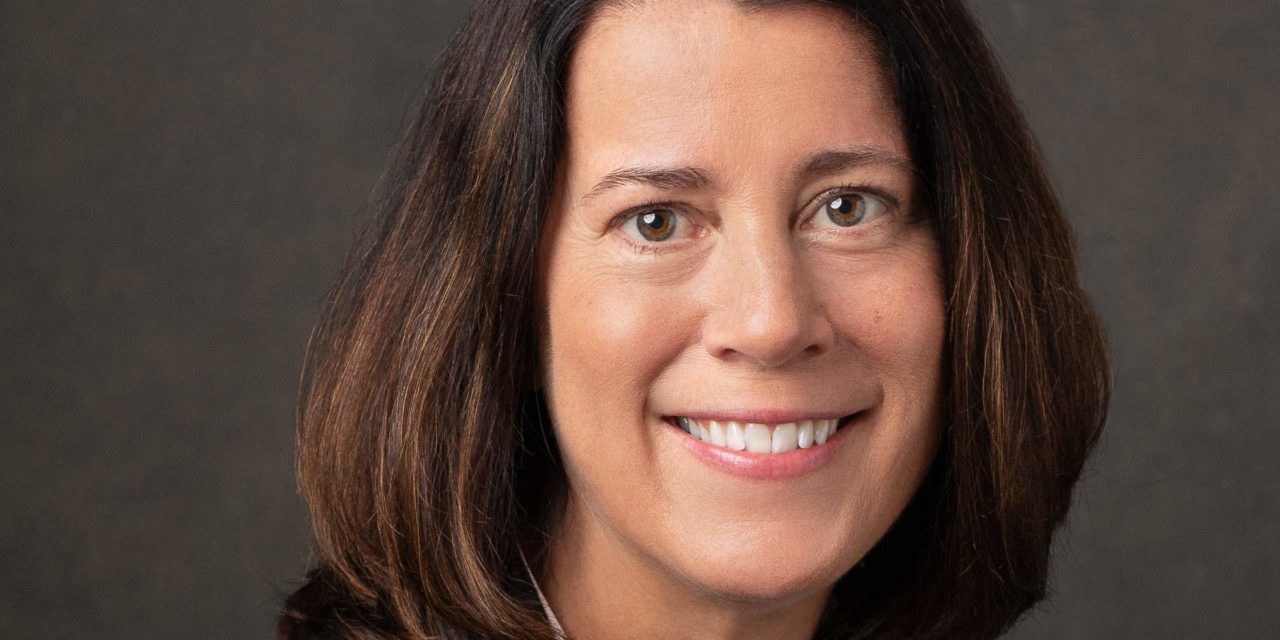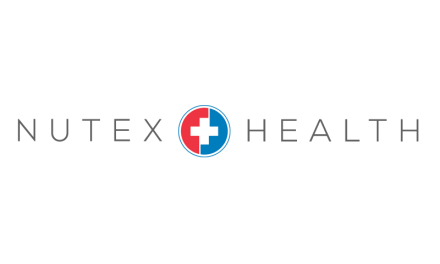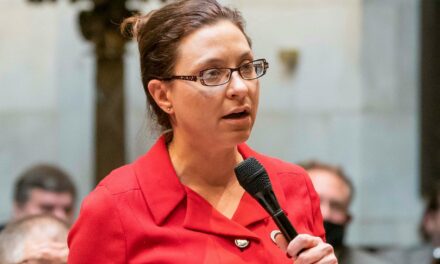
On the record with Bellin Health CEO Chris Woleske

Chris Woleske took the helm at Bellin Health in October 2018, succeeding longtime CEO George Kerwin. She served in a variety of roles at the system before that, starting in 1998.
In a phone interview with Wisconsin Health News Thursday, Woleske talked about her system’s recent decision to restart elective procedures and the impact that COVID-19 outbreaks at area meat processing plants have had on hospitalizations at Bellin.
She also discussed the Supreme Court ruling on Gov. Tony Evers’ safer-at-home order.
Edited excerpts are below.
WHN: What’s your reaction to Wednesday’s Supreme Court ruling blocking Gov. Evers’ safer-at-home order?
CW: This was going to come one way or another. Either the governor was going to allow businesses to continue to open more and more, as he was doing on almost a daily basis. Or the Supreme Court was going to make the decision that they did. We all will adjust to it…
It is time to start looking at how do we co-exist with COVID. We’re looking at it internally in our own organization. We’re helping our employer partners think about it in the context of their business. We’re going to continue to have to be vigilant about hand hygiene, and wearing our masks and continuing with physical distancing and exercising some social distancing. And we have to be, I think, particularly concerned about protecting the most vulnerable in the population and the long-term care facilities. Any congregate living facility has to be a place that we continue to exercise an extreme level of caution so that we can keep the spread of COVID-19 out of those facilities.
WHN: In recent weeks the region has seen an uptick in COVID-19 cases after outbreaks at several meat processing facilities. What has this meant for the capacity at your hospitals?
CW: To be honest with you, the average age of the positives in Brown County has been, I think, 39 for women and 43 for men. So we have a relatively younger average age in the population of positive. So it stands to reason that you’re not going to see a significant spike in hospitalizations. And that’s exactly what happened. We pretty much had, between the health systems in Green Bay, a fairly stable number of hospitalizations throughout this, and obviously our hope is that we can continue that. Because it’s not so much the positive test results that are the end-all, be-all. It’s really the level of illness and the need for hospitalization that is the big concern for us in terms of our ability to meet the needs of the population…
I think it may surprise people to know that, as of the start of this week, we had only seen as inpatient, 55 people with COVID positive.
WHN: Bellin is restarting elective procedures that have been halted since the start of the COVID-19 pandemic. How did you decide that this was the right time to do that?
CW: We always knew that we would come to a point where it would be time to begin to meet the needs of the entire population once again. And part of the reason for health systems taking that pause and deferring some things was at the direction of the federal agencies telling us you need to get ready for a large surge of patients. And so we did this all-hands-on-deck incident command emergency preparedness model. We created a separate unit within our hospital for our COVID patients. We created a separate respiratory clinic on the outpatient side. We created a new triage methodology for our emergency department. We did all of the things that we could learn about in terms of best practice from everywhere around the world.
And when we did all those things – and we worked really hard on getting more of the personal protective equipment so that we have the capacity to care for all of the populations – we started to feel really good about how stable the inpatient volumes are. We really felt, ‘OK, we need to start planning for this co-exist with COVID-view of the world.’ And at the same time, we also started to see an increase in patients presenting to the hospital, not for COVID but needing admission for cardiac issues, needing admission for surgical cases, because they were not accessing healthcare and getting the care to potentially prevent those readmissions.
And so we realized when we saw that happening, that it’s time. You can’t defer healthcare forever.
WHN: What’s been the financial impact of delaying these procedures?
CW: Our volumes in the clinic setting were down about 40 percent. And our surgical volumes were down about 70 percent. So when we talk about being down about 50 percent on average, it’s when you take both of those, that’s about what we were down. So, that caused a significant decline in our revenues.
And some of the things that we did to offset that related to how we staff. A lot of our team members reduced their full-time equivalent. If they were a 1.0, many became somewhere between a 0.5 or a 0.8. We all did it. Everyone, including myself, took a reduction either in our FTE or in our pay to offset the loss of that work.
WHN: What is the status of personal protective equipment at Bellin?
CW: We’ve taken a lot of steps in our supply chain. People have done an amazing job working with local new sources to get face shields for example. And people who have 3D printers have been amazing about printing all kinds of parts and pieces that go into creating our PPE supply. We’ve had an amazing number of people out there sewing and creating the cloth masks for us.
The Green Bay Packers gave us a significant donation to purchase more of our PPE. And we’ve gone out and everyone who has any connection has gone out and made the ask. Many of our employer partners have made significant contributions to us from their supply of N95s. And that also was one of the pieces of information that allowed us to say, ‘OK, we have sufficient PPE supply coming in through regular channels to be able to manage our inpatient COVID census on an ongoing basis and be able to care for the rest of the population.’
WHN: What steps is Bellin taking around testing as it begins to reopen things?
CW: We test patients before they have a surgery and we also are testing our staff. We would love to be able to have more rapid tests available. That would allow us to turn these things around much more quickly and be able to schedule our services much more effectively and efficiently than we’re able to today. Today, we have to send the test out and we have to wait for the results to come back in. And it’s not the most efficient way of doing things. When it’s a non-urgent case, it’s OK if it takes a few days to get a test result back. But we do want to continue to talk about and seek ways of having more access to rapid testing. Because I think that’s really important, and I think it’s gonna be important for some employers as they get started up again, and they want to be able to ensure safe operations.
I know that there’s community testing sites that are cropping up across the state, and Green Bay has had a couple of testing sites that have been going for maybe a week or so, and we have another week that we’re gonna do them. My hope would be that the county would continue to host a community testing site that would turn on and off based upon the needs as these waves happen or as outbreaks happen. I really do feel that it’s a responsibility of the county and public health to be facilitating the community-wide testing, and I’m asking them to continue it.
WHN: A number of systems across the state have started offering antibody testing. Why is Bellin not offering antibody testing, and what role do you anticipate it playing in responding to the pandemic going forward?
CW: So our medical branch is obviously much more knowledgeable about this than I am, and I will try to do my best to reflect what it is that I have learned from them, and why they have made the decisions that they have. I think the antibody testing has been evolving and it’s evolving much more quickly now, and the reliability of it is getting better. And that was one of the things that they wanted to see before we got into it, is that there would be better reliability.
The second concern that they have had is the use of the testing and what it’s being promoted as capable of. So, their concern is that we don’t know yet what it means to have the coronavirus antibodies in terms of whether it means the immunity or not, what it really tells us. The concern would be that behaviors may change based upon someone understanding that they have the antibodies and thinking that it means something that it doesn’t. And so concerns about relying on those test results inappropriately.
However, it is helpful for plasma donation and convalescent plasma has apparently some benefits. And our physicians are supportive of investigative studies on convalescent plasma and for that reason are supportive of the antibody testing being used for plasma donation. And so they are working collaboratively now on an intake process that would allow us to order and get antibody testing for individuals who had COVID and want to be able to donate plasma.
Wisconsin Health News is removing the password on all stories related to the coronavirus. For the latest developments follow us on Twitter at @wihealthnews or check out our website. For complete healthcare coverage, sign up for a free trial to our daily email newsletter.





